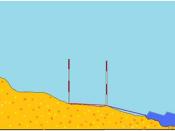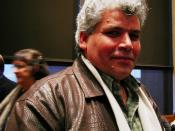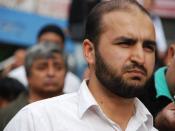"A student from Liberia attending college in North Carolina was driving along I-95 in Maryland when he was pulled over by state police who said he wasn't wearing a seatbelt. The officers detained him and his two passengers for two hours as they searched the car for illegal drugs, weapons, or other contraband. Finding nothing, they proceeded to dismantle the car and removed part of the door panel, a seat panel and part of the sunroof. Again finding nothing, the officers in the end handed the man a screwdriver as they left the scene, saying, 'You're going to need this'" (Rice).
There are many differing definitions of 'racial profiling'. One of the definitions is "the practice of stopping and inspecting people who are passing through public areas--such as drivers on public highways or pedestrians in airports or urban areas where the reason for the stop is a statistical profile of the detainee's race or ethnicity" (Callahan and Anderson, 2001).
Racial profiling has become a very hot topic over the last few years, especially after the events of 9/11. Some argue that racial profiling is wrong and unconstitutional, others that it works and there is nothing wrong with it. While some argue that racial profiling does not, in fact exist at all. Does Racial Profiling exist, and should the police be using this tactic?
Racial profiling has become as much a political issue as a social issue. In his February, 2001 address to congress, George W. Bush reported that he'd asked Attorney General John Ashcroft "to develop specific recommendations to end racial profiling." On June 9-10, 1999, then president Bill Clinton, Attorney General Janet Reno and a group comprised of civil rights leaders, police officers and other governmental leaders participated in the Strengthening Police-Community Relationships conference in Washington D.C. At the...


